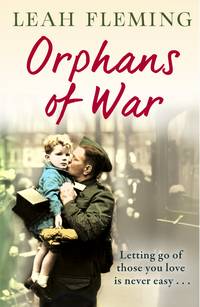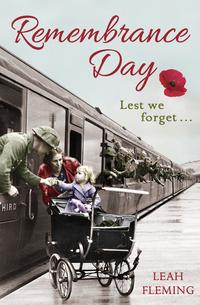
Полная версия
The War Widows
If they win, we shall pay for this, Ana sighed, with a chill in her heart. There are too many of them.
Her back ached with weariness. It was looking more like a butcher’s shop than a makeshift hospital. Someone had made a Red Cross flag out of sheets and daubed it with blood to hang over the roof. Perhaps when the bombers returned it might save them.
The young nurses took it in turn to relieve themselves, sip lemon water, bite on the hard dacos bread, anything to stop the hunger.
At dusk, Ana found herself by the temporary mortuary, no longer sickened by the stench of blood and death. It was not a place to linger but it was cool and quiet. She sat down, too tired even to pray. How could things happen on such a beautiful May morning, when all the roses and flowers were still in bloom?
Then she heard a strange moan. Her heart jolted: a groan was coming from under the sheet, then another groan. Someone was alive under that sheet, waiting to be buried alive in a shroud. She thought she was dreaming. Tiredness must be taking its toll. She walked silently towards the sound, stepping over a line of stiff bodies on the floor. There it was again, and she pulled back the sheet.
Under it was a soldier in olive-green fatigues, fair-haired, his blue eyes flecked with navy blue, staring at her in terror.
‘Hilfe…hilfe.’ His eyes cried out to her. Here was the enemy at first hand, a boy no more than her age, lying terrified, at her mercy, mistaken for dead. She saw the deep bruises on his battered cheeks.
In that moment, Ana knew she could silence him for ever, call for one of the guards to finish him off. But she was transfixed, unable to think. The world stood still. She was a Red Cross nurse, dedicated to taking no sides. But he was the enemy, this bronzed, handsome boy. His eyes were pleading for life. This man had a mother and family far from home. He was serving his country, doing his duty, but on her island.
‘Oh no!’ she panicked, pulling the sheet off him. There was a side door where the carts came to collect the bodies. It was dark.
He staggered to his feet, dazed, wobbling.
‘Go!’ She pointed to the door.
‘Danke, Fraulein…Mein Name ist Otto…Wie heissen Sie?’ He towered above her. This boy wanted to know her name?
‘Oxi…no name,’ she croaked in broken English, having no German. ‘Go!’ she ordered, opening the door into the dark narrow street. The boy staggered out into the alley, defenceless but alive, soon swallowed up into the night.
Ana slammed the door, pulled away the sheet and dragged the bodies to fill his gap, appalled at what she had just done. I have betrayed my country, God help me! She crossed herself. No one must ever know of this treachery or her family would be dishonoured for ever.
Feeling sick, exhausted and defiant at her action, she struggled to justify what she had just done. Surely the boy would be felled before he left the winding alleys of the Venetian port? He was an easy target, even for a child. Ana shuddered. Her duty lay with the living, not the dead.
‘Ana! Ana! Where are you? Have you been asleep?’
Perhaps it was a dream, just a nightmare, and tomorrow she’d find it had been all a figment of her imagination.
But when the sun rose like a ball in the east, nothing had changed. She had met the enemy and his name was Otto. His face haunted her dreams. For that one act of mercy, she’d been punished over and over, but now there was no time to dwell on such horrors.
The two women sat together on the bench, moving closer as if to gain courage from one another. The daughters on their knees reached out to one another. A tall woman walked past them, staring. Someone brought them a cup of tea and they sipped it politely. Ana did not know what to say to introduce herself to the oriental girl, even though her English was better than most.
‘You wait also for soldier boy to come?’ she asked, looking again at the clock on the wall. ‘It is late.’
‘Mr Stan will not forget. I wrote many times,’ smiled the young woman, sipping the tea, her back straight. Her voice was clipped but the English was good.
‘My man is at camp, maybe come. Maybe he send someone,’ Ana nodded. ‘Where you stay, in Manchester?’
‘No, it is a town called Grimbleton. I will live with his family when he is a soldier. I sent a telegram. He will come soon…This is not tea.’ She grimaced, trying to swallow the terrible taste, and Ana laughed. She would never get used to this dishwater either.
‘We go Grimbleton also,’ Ana nodded, wishing this drink was hot strong Greek coffee with glyka–lots of sugar-but she had not tasted real grains for years. ‘My man has a house there for us to stay, my fiancé.’ She paused. She wanted to be thought respectable, even to a stranger.
‘We shall see each other in the village then?’ answered the other mother.
Ana nodded at the tiny woman, who was sitting so pert, her glossy, black hair in a neat bun at the nape of her neck. Her face was heart-shaped. With those wide eyes and dusky skin, she looked delicate, like a china doll. ‘Where you come from?’ Ana asked.
‘London…it has been a long way, a long story to tell,’ the other woman replied, her eyes lowered as if she did not want to be reminded of her past. ‘And you?’
‘I come from Athens…Greece.’ Ana did not want to give her true identity. ‘It is a long story how I come to Manchester with my Dina.’ They smiled politely and fell silent.
‘Your child has hair like gold,’ sighed the oriental girl. ‘My soldier has hair like a sunset too. It is not a colour we see often in hair. Somewhere I have a picture. Would you like to see my intended?’ She was rummaging through her straw holdall but stopped suddenly to inspect a man as he hurried over to the desk looking in their direction.
He was tall and lanky, dressed in a black suit with hair flattened down into a centre parting, on his face a thin moustache. The officer looked at them both, gathered up his papers and strode across towards them.
‘No one’s come for you yet? Are you sure you’re in the right place? This is Manchester. You can’t stay here much longer.’
Ana looked at her neighbour and promptly put her cup down. ‘I go nowhere. I wait here. They will come.’ She had been in too many displaced persons’ camps not to know how to get attention. Making a fuss had saved her life, got her food, got her and Dina safe passage. She would open her blouse. That soon got them going. She was a proud daughter of Crete but she knew how to fight. But first she must give him the facts. ‘I have letter. This is right town. I not move. I have baby to feed,’ she pleaded. One thing she had learned about the English was they didn’t like a fuss: no loud voices, tears or wailings. They liked fair play but done quietly, no digging in of heels.
‘I also have a letter,’ chirped in her neighbour. ‘We will wait.’
‘Please yourselves, but if no one’s come to collect you soon…’ the official sniffed.
‘They will come,’ they said as one, more in hope than certainty.
By the time Lily made her late entrance through the foyer of Ringway Aerodrome there was no one waiting for her; only an escort officer giving two foreign girls an ultimatum.
‘I’m sorry, ladies, but yer time’s up. I did warn you. If no one comes to collect you, it must be reported and you’ll be sent back to your own country.’ He looked at his list and at his watch, brushing his hand over his Brylcreemed hair, clearing his throat.
They were the only people left, sitting with toddlers on their knees in the draughty arrivals hall, looking forlorn as they scoured every coming and going, to no avail.
Suddenly the oriental girl stood up and flung herself on the floor on her knees in a bow of total submission, her black eyes peeking from beneath a battered straw hat while the child, in brown leggings and pixie bonnet beside her, watched open-mouthed as in halting but perfect English her plea was made.
‘Honourable sir…this is a big mistake. I have my letter here. I send a telegram. He will come for me,’ she pleaded. ‘We do not want to go back out east.’
This is terrible, Lily thought. That poor lass must be desperate to be humbling herself before a stranger like that. She could hardly watch. Poor refugees coming all this way by sea and air to a strange country that demanded papers, checks, medicals and questions, and no one to greet them. It was a disgrace.
And just who was the other reject in the printed headscarf? She looked like one of those displaced wanderers of war you saw on the Pathé News: a war bride or perhaps the bona fide fiancée of a British citizen. The two girls seemed such forlorn figures, abandoned by heartless Tommies who had, no doubt, promised them the earth. They looked so helpless Lily just couldn’t sit by and do nothing.
Her heart went out to them but where was Susan Brown? Did she think she too had been abandoned in the cold, clutching her bags in a panic, Freddie’s letters burning a hole in her pocket? What must she think of his family?
Lily watched the golden-skinned child cowering into her mother’s blouse for comfort until the mother pulled her away and the child’s mouth opened into a huge howl of protest. There was a tincture of dirty nappy she recognised only too well.
The muffled toddler was lifted up. What a welcome to Manchester! To be left behind with no one to greet them was a dreadful fate.
Passengers from the next flight were already hurrying through the hall, looking out expectantly as they were met by waiting relatives. Was Susan Brown among them? She would be searching for Freddie in the crowd, not a stranger. She must have wandered off somewhere, but where in this rabbit warren of buildings?
Perhaps the girl was in the toilet trying to spruce herself up after such a long journey, putting on warmer clothes? If only Lily knew what she looked like. Better to ask again at the desk, but the plight of these two Orphan Annies and their babies moved her to offer some help.
It was those summer dresses with ill-fitting suit jackets-probably their very best outfits-that moved her to pity. Their offspring at least were well padded in siren suits with pixie hoods, wide-eyed with terror. She would have to do something. She was a Brown Owl and Guiders knew their duty.
Perhaps there was some hiccup at Immigration and Susan Brown was delayed somewhere. Freddie must have filled in the sponsorship forms or his girlfriend wouldn’t have got this far.
The second mother looked thin and shabby in her faded frock with a striped headscarf covering her dark copper hair. Wisps were straggling across her cheeks and there were tears welling in her eyes as she helped the oriental mother from the floor. Suddenly they both started to rock back and forwards, keening and hollering so everyone stopped to stare and the children howled in sympathy.
No one was coming for them. It was a terrible sight, tugging at Lily’s heartstrings. Something must be done.
‘What is going on?’ she asked the official.
‘These lasses’ll have to go back. They are the third lot of abandoned refugees I’ve had to sort out today. More paperwork and more tears. If only our chaps wouldn’t promise these girls the earth, but that’s soldiers for you. Where that Greek comes from she’ll be in trouble. Women like her end up put out of the family for bringing shame.’ He was pointing at the headscarf, shaking his head.
‘Can we get them a cup of tea?’ Lily asked, feeling even more sorry for the two rejects, who were now huddled on the bench together as if to gain courage one from the other. It would give her something to do and a chance to search for Miss Brown, but with no photograph to guide her, Lily was beginning to panic. What if the girl set off for Grimbleton on her own in the dark? There was no direct bus route without going into the centre of Manchester first. Anything could happen…
A woman in an overall brought some chipped cups of tea on a tray and Lily handed them out to both strangers with a smile.
‘Your soldier boys will come,’ she said in her brightest voice. It was late. Perhaps Miss Brown was on the next plane from London.
‘Mister Stan will not forget. I wrote many times,’ smiled the oriental young woman, shaking her head at the teacup. ‘No more tea, thank you.’
‘My soldier is at camp. He come. He send brother,’ said the other.
‘Where are you from?’ Lily asked, hoping to take their minds off their predicament.
‘London,’ answered the tiny woman.
The two of them were like peg and prop. One was tall and statuesque, the other tiny like a bird.
‘And you?’ Lily turned to the girl in the headscarf.
‘I come from Athens…Greece.’
They all smiled politely and fell silent, lined up like a set of jugs against the wall until the official Lily had spoken to at the information desk hurried over. He was beaming with relief, looking at each of them and clutching his papers.
‘Winstanley…Any of you for Winstanley?’ he mouthed slowly.
At last, thought Lily, her enquiries were bearing fruit.
At the sound of the name the two women rose as one. ‘Yes,’ they replied in unison, standing expectantly and then immediately stared at each other with suspicion.
Lily sat down with shock.
‘This is Miss Winstanley, she’s come to collect one of you,’ said the officer, but they both also sat down promptly and shook their heads.
‘There must be some mistake. I’ve come for Miss Susan Brown from Burma,’ said Lily.
The man was pointing to the oriental girl, who was back on the floor, prostrate again, her head buried in her palms.
‘Honourable sir, I do not know this lady…She is not my Mister Stan,’ she sobbed, pulling her child into her chest away from them.
The other girl grabbed her hand. ‘Get up, Miss Susan. Your Mister Stan has sent for you. Lucky, lucky you.’ She turned to Lily. ‘I wait for Sergeant Winstanley. She wait for a Mister Stan.’
Lily felt her knees shaking. There couldn’t be two Winstanleys anticipated, could there?
‘Not to worry,’ she whispered. ‘If your name is Susan Brown, then it’s me come to collect you. I’m Lily Winstanley, Freddie’s sister. I’m sorry I was late.’ Stretching out her hand as if to gather up Susan in one fell swoop, there was no hiding her relief. ‘Freddie said you were bonny but I was expecting…never mind…’ There was no hiding her surprise.
‘Freddie, you know my Freddie, Miss Lily?’ said the Greek lass, jumping up excitedly. ‘I have his address: twenty-two Division Street, Grimbleton.’ A piece of paper was shoved under Lily’s nose. Arms were flung round her. ‘He is coming for me too?’
‘Hang on,’ Lily gasped, stepping back quickly. ‘Not so fast…It’s her I’ve come for: Susan Brown from Burma, Freddie’s intended. I don’t know anything about you. Show us that address again,’ she said, peering at it intently and then at them both.
‘But that is my address too,’ cried Susan, peering at the lettering. ‘My Stan lives at twenty-two Division Street, Grimbleton. It is written on my heart.’
The other girl folded her arms. ‘But I am Anastasia Papadaki. Sergeant Freddie Winstanley is my man and Konstandina is his child. I name her after his mother, Konstantia. It is the custom, yes?’
‘No, No! I am Susan Liat Brown. Mr Winstanley is my intended,’ screamed Susan. ‘And this is his child, Joy Liat. He is my man. I have his address. You, lady, are a big liar! I have a photo…See!’ Susan produced a tattered sepia photograph. ‘It was taken in Rangoon before he left on a ship, when I was a teacher. See…we are in a concert party.’ Her smile was triumphant.
Lily peered at it with dismay. There was no doubting that was Freddie grinning at the camera, dressed in a Pierrot costume.
‘Give me here. On the bones of Agios Vasilios…Ne! Ne! Yes! That is Freddie, my Freddie. We meet in Athens when I was nurse,’ said the Greek, refusing to give way. ‘She is liar. Susan is dead!’
‘How am I dead if I am here with little Joy?’ Susan shouted back, clinging to the toddler. ‘She is his little Joy.’
There was a deafening silence as they both stared at each other. Lily’s heart was thumping a drumbeat. It would take the judgement of Solomon to sort out this mess.
‘Oh heck,’ she said, scratching her head. What have you been up to Freddie? she sighed.
They were all looking to her for guidance. ‘What do we do now?’
‘These women go nowhere,’ ordered the officer, already pink in the face. ‘Not until the man in question comes to collect them in person. He can’t have two wives in this country, whatever he’s been up to. So one of you is going to be disappointed, I’m afraid. Sergeant Winstanley must choose his bride.’
‘That might prove difficult, sir. Can I have a word in private?’ Lily whispered to the officer.
He pointed to a corner out of earshot, both looking over at the mothers, who were each wishing that the other would disappear into thin air. How on earth was this mess going to be sorted out?
Miss Brown was standing frozen like a statue, tears rolling down her face. Anastasia was standing with her arms folded. And there were the two kiddies to consider: were they both really Freddie’s little girls? The two of them then came storming across, led by the Greek, who was all fired up.
‘Come on, missy…I no trust them. They hide words from us. We have daughters. Maybe there are two Freddie Winstanleys. One for each of us.’ Miss Ana was taking charge. ‘You and me is going to sort this out.’
The officer stood in their path. ‘There’s been a development,’ he said softly. ‘I’m sorry but under the circumstances, you must both go with Miss Winstanley and sort this out amongst yourselves, the two of you and the family. His mother is waiting to meet you. Good luck!’
He looked relieved to be shovelling this awkward problem on to the stunned woman in the tweed suit. And Lily was too shocked to do anything other than gather up their luggage and propel them towards the door like a taxi driver.
It was raining hard as they trooped towards the black van with no time for Lily to put on her mackintosh so it would hide the black armband sewn onto her sleeve. The mothers would be far too upset to note its significance or the fact that they were getting soaked.
Somehow cases and bodies and children were crammed into the back of Gertie. The gloomy ride back to Grimbleton was a blur of steamy windows accompanied by the ammonia smell of wet nappies and the sniffing of tears in the back. Gertie coughed and spluttered in protest at the extra weight but trundled them northwards. If only she was driving the bigger Rover saloon but it was still in the garage, standing on bricks, out of action for the duration.
What on earth must these two poor lasses be thinking? Lily felt her hands shaking at the wheel. Perhaps it was lucky that the windows were steamed up so they missed the worst of the soot and the grime, the gaping bomb sites around Manchester, the dark satanic mills.
Lily’s heart was thudding as the streets of Grimbleton came into view.
What on earth was she going to do with two of them? What would the family say to two women with the same address? How did they explain away two little girls, not the size of tuppence halfpenny? What would the neighbours think, and Walt too?
This would be the biggest bombshell to hit Division Street since the air raid in ’41. I’d like to give that brother of mine a piece of my mind. He’s gone too far this time, she thought.
Then she remembered he was dead and these two didn’t know. None of them would ever see him again.
The baby, Dina, was whimpering, tugging her back to reality. Freddie may have passed away but he’d sure as hell left quite a legacy behind.
5 The Day War Broke Out Again
Susan peered at the back of the driver’s head, at the roll of brown hair anchored with pins and at the felt hat. What was she doing in this clanking van? Had they been kidnapped? Why was she crushed in the back with strangers and the smell of stale bottoms? This was not how England should be, surely?
It should be a beautiful carriage and horses like the picture on the tin of chocolates that Stan brought as a gift to Auntie Betty, her guardian. There was a pretty house with a golden grass roof. Roses tumbling from the walls and a blue, blue sky. She had read many school books with castles and great stone palaces in them, wide parks with tall trees, but nothing like this.
Outside it was all grey and sooty, no moonlight on this wet afternoon. Gaslamps flickered like troubled spirits. For all she was brought up as a Christian girl, she believed her grandmother when it came to honouring the nyats, those guardian spirits of house and home. She whispered, ‘Kador, kador,’ so as not to incite their anger. It was bad enough to be sharing this van with the imposter who claimed Mister Stan was the father of her child. The liar! He would not be so quick to take another woman after their tender embrace.
After all the preparations to get to British soil, home of her late father, Ronnie Brown, the hoarding of rations and planning, the obtaining of permits and passports, nothing was as she had dreamed. It was true British soldiers liked Burmese girls but never got round to marrying them, but she thought Mister Stan was different.
‘If anything happens and you need my help, beautiful flower, just write to this address,’ he promised when his leave was cancelled quickly. She had carried his words close to her heart in her tunic pocket when other Tommies asked her for a date. Was it all the lies of a cheating man?
She clutched ‘Precious Teddy’, the teddy Auntie Betty had given to Joy for comfort. It smelled of home, of spice and pickle, cigarettes and the ship. Something was wrong. But she had not walked hundreds of miles out of Burma, fleeing the Japanese through the jungle, to be stopped now.
Burmese ladies might look like delicate orchids but their will was made of iron. Sometimes in her dreams, she was back in those hills on the trek north from Rangoon in the summer of 1942. Fear stalked them all the way. There was one valley where the sun hovered over the ridge of hills above them, and when it slid away the hills seemed to crouch down and whisper, ‘You’ll never get out of here alive.’ They called it the valley of death and many succumbed to dysentery and bite infections. They were town people, not used to rough terrain. She was younger and more nimble. She walked with the children, cajoling them to keep going, singing songs to cheer them. ‘It’s a Long Way to Tipperary’ was their favourite.
One night they were attacked by bandits who torched their camps and stripped them of their bundles, cigarettes and rings, and separated the girls from the men. The women clung together, fearing the worst of fates. They would be sold into slavery but not before the men had sampled the goods, she was warned.
How wonderful are the ways of God’s angels when rescue came that very night from a patrol of young Japanese warriors who saw the flames. They killed the bandits and gave the Burmese rice, sharing their rations.
Su could never understand how the enemy could be kind one minute and vicious the next. An officer took her aside and asked if she was British.
‘No! No! Burmese,’ she protested. ‘I am ayah to these children,’ she lied. ‘I’m taking them to safety. War is not a place for children!’ He nodded and let her go.
Under cover of darkness, they were allowed to slip away unharmed. How strange that it was the enemy who showed mercy.
Wrapped only in her long skirt, she had trekked for hundreds of miles with rope tied around the soles of her sandals for shoes. She had lived while others died of sores, starvation and exhaustion. Their bodies were consumed by the creatures of the jungle. Of the hundreds who set off on that epic trek, only the young and the tough survived to reach the Assam border.
Here there was respite, food and medicine, and she found kindness among the nurses. It was they who persuaded her to turn round and walk back to join the Women’s Auxiliary Service of Burma, helping the wounded men off ships and giving them char and wads, smiles and dances.






